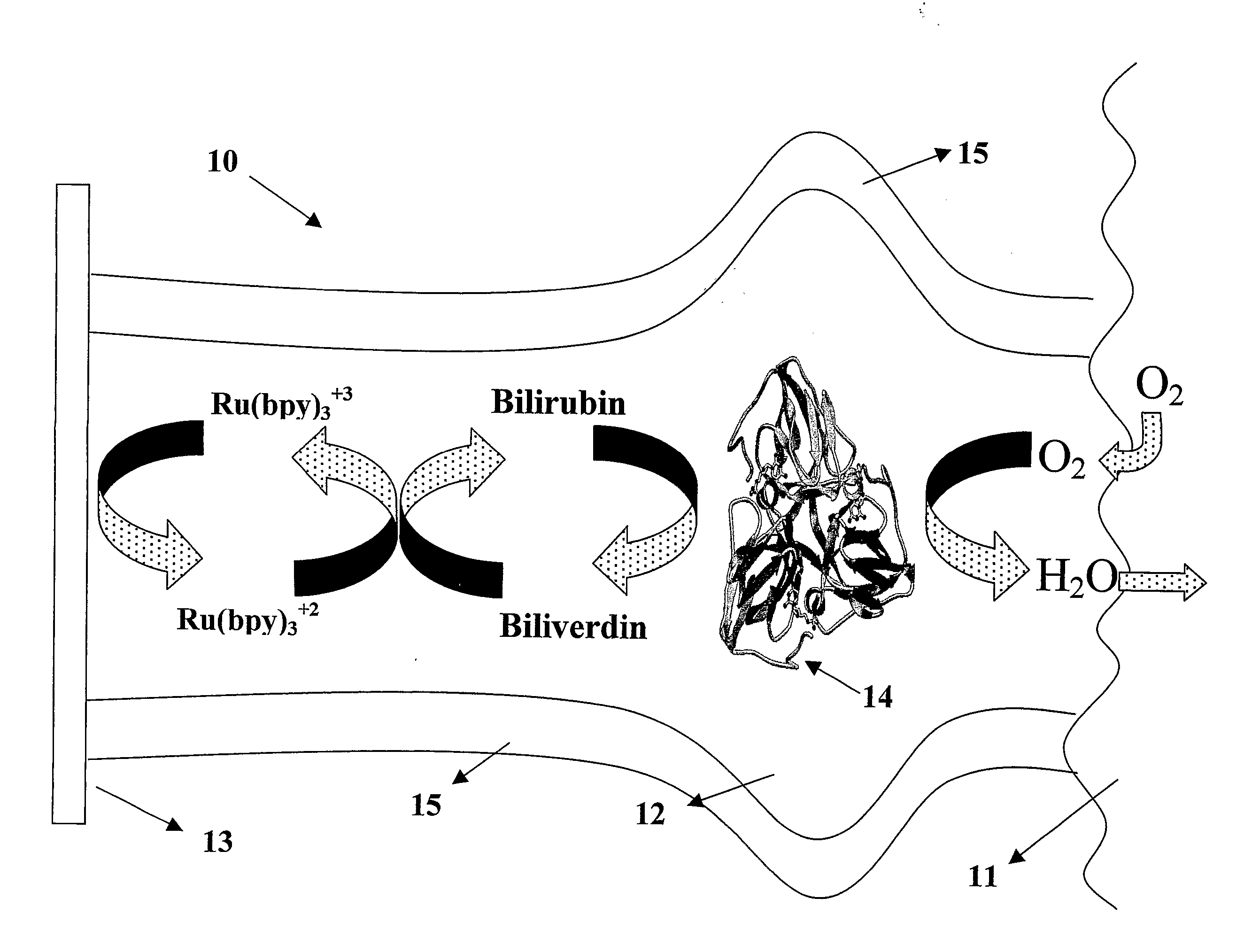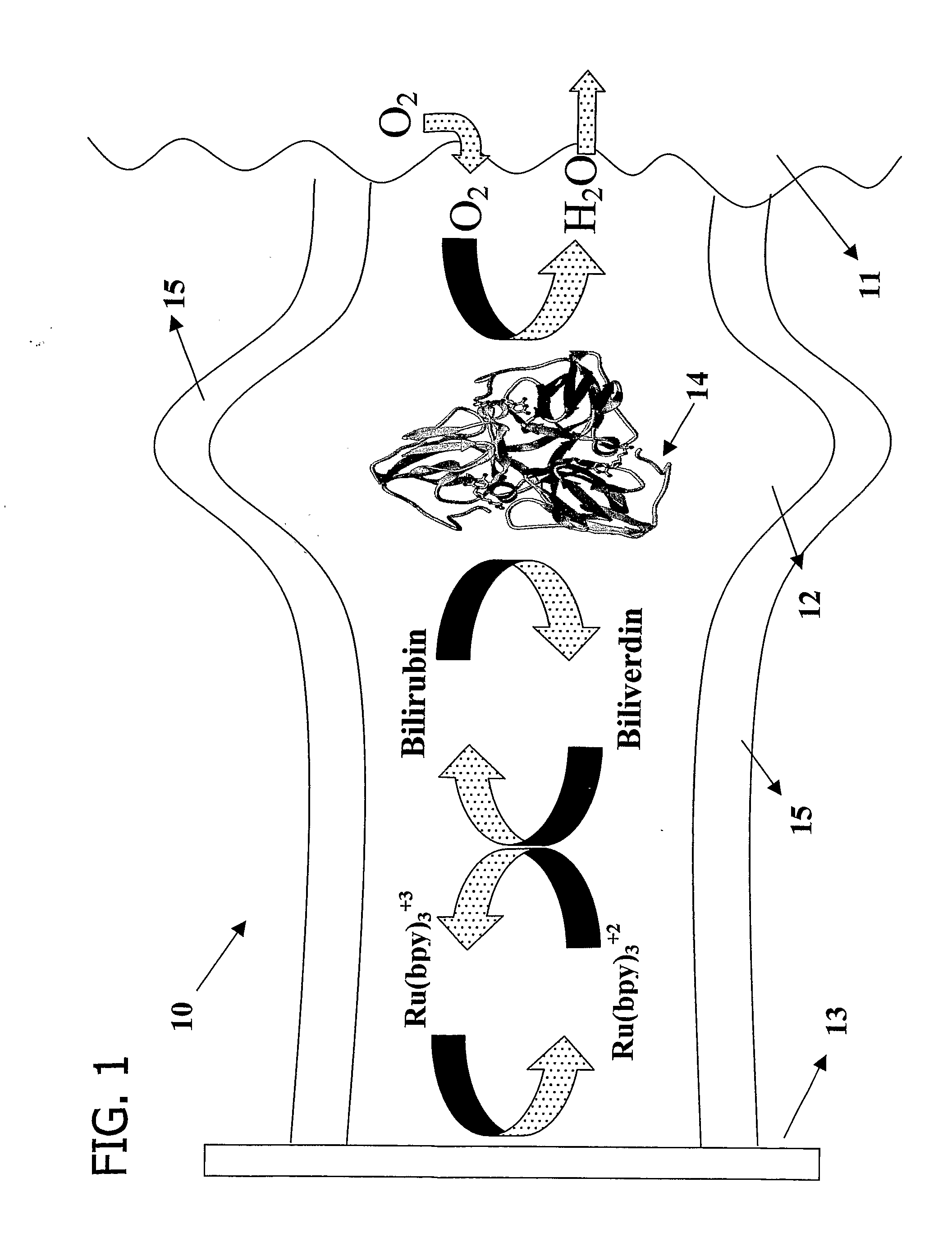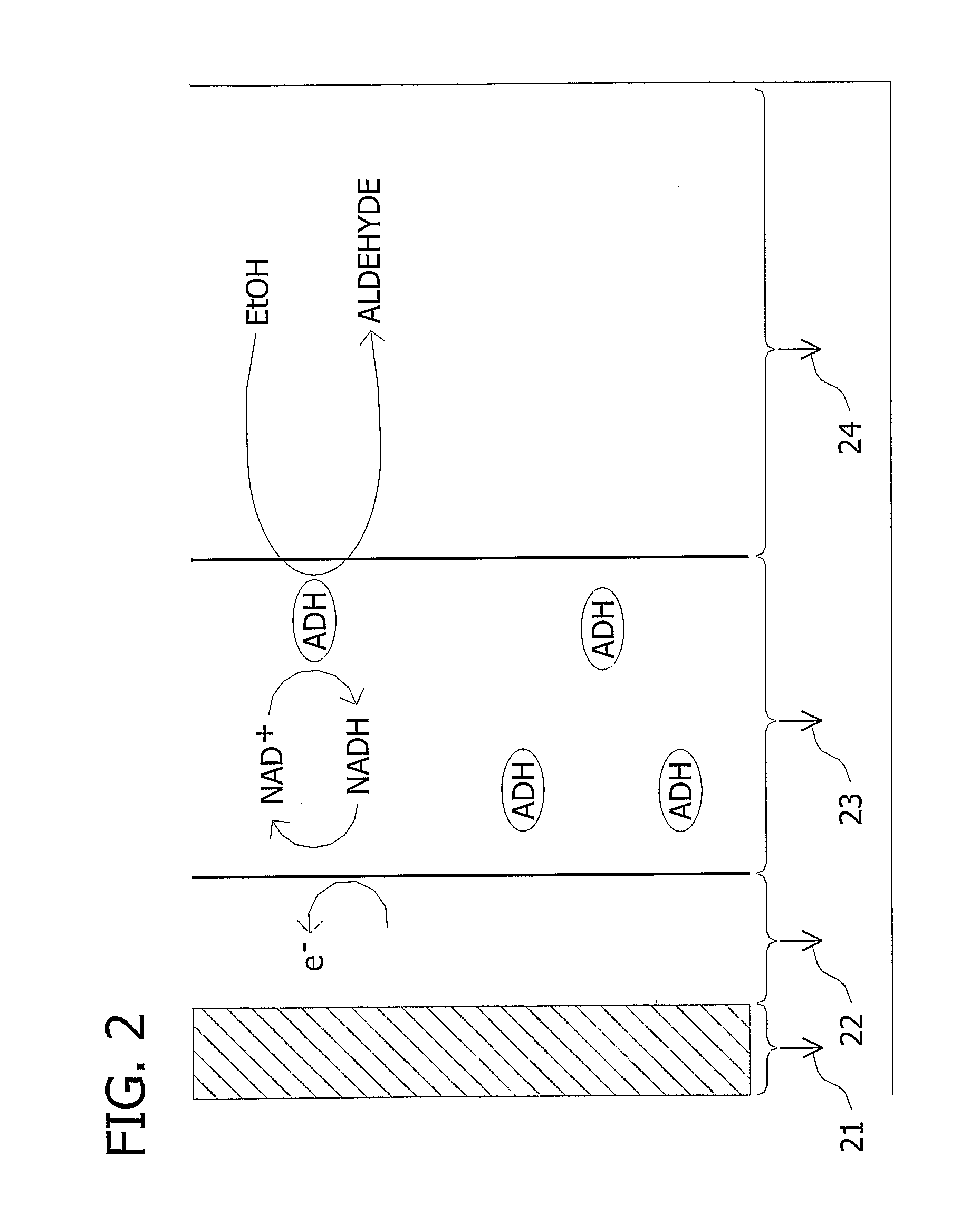Microfluidic Biofuel Cell
a biofuel cell and microfluidic technology, applied in the field of microfluidic biofuel cells, can solve the problems of providing impractical power density output, incorporating them into fuel cells, and nafion® not being able to immobilize enzymes at the surface of biofuel cell electrodes
- Summary
- Abstract
- Description
- Claims
- Application Information
AI Technical Summary
Benefits of technology
Problems solved by technology
Method used
Image
Examples
example 1
Forming an Electrode
[0177] Replica molding was used to form a pattern for a microchannel of the desired electrode dimensions in a PDMS casting mold. Here, the pattern was about 10-70 μm wide, about 2-4 cm long, and about 5-75 μm deep. Also, two reservoirs were formed in the PDMS casting mold, one at each end of the length of the microchannel pattern. See FIG. 3a. These reservoirs served as the entry reservoir and the vent for future operations. The PDMS casting mold was then sealed to a glass substrate with the microchannel pattern facing the substrate. The substrate also included a tubing connector, placed adjacent one end of the casting mold. This tubing connector served to deliver the electron conductor solution and other solutions into the microchannels during subsequent processing. The microchannel was then primed with about 0.5 mL of Ercon N160 Solvent Thinner and filled with a carbon electrode solution of about 0.1 g of Ercon E-978(I) Carbon-based ink by flowing the solution...
example 1a
Microelectrode Preparation
[0179] Masters for the production of PDMS micromolding channels were made by coating a 4-in. silicon wafer with SU-8 10 negative photoresist using a spin coater (Brewer Science, Rolla, Mo.) operating with a spin program of 1000 rpm for 30 seconds for micromolding channel. For flow channels, a spin program of 1750 rpm for 30 seconds was used with SU-8 50 negative photoresist. The photoresist was prebaked at 90° C. for 5 minutes prior to UV exposure for 4 minutes with a near-UV flood source (Autoflood 1000, Optical Associates, Milpitas, Calif.) through a negative film containing the micromolding channel or flow channel design structures (Jostens, Topeka, Kans.). The transparency was made from a computer design drawn in Freehand (PC Version 8.0, Macromedia Inc., San Francisco, Calif.). The design was transferred to a transparency using an image setter with a resolution of 2400 dpi by a printing service (Jostens, Topeka, Kans.). Following this exposure, the wa...
example 2
Creating Electrode with EIM in Electron Conductor Solution
[0189] The procedure of Example 1 was followed with slight modification to simplify the process of forming an electrode comprising an electron conductor and an enzyme immobilization material. To do so, the electron conductor solution was modified to include the enzyme immobilization material. The additional material was prepared by adding 0.0003 moles of TBAB to 1 mL of Nafion in a weigh boat and allowing the mixture to air dry. After drying, water was added to rinse the mixture, and the mixture was allowed to air dry overnight. Next, the mixture was rinsed two more times with water and allowed to air dry. Then the material was suspended in 1 mL of Ercon N160 Solvent Thinner and vortexed thoroughly. Finally, 1 mL of this modified thinner was added to 0.5 g Ercon E-978(I) carbon-based ink. This modified electron conductor solution was then flowed through the mold cavity formed by the casting mold and the substrate and cured a...
PUM
 Login to View More
Login to View More Abstract
Description
Claims
Application Information
 Login to View More
Login to View More - R&D
- Intellectual Property
- Life Sciences
- Materials
- Tech Scout
- Unparalleled Data Quality
- Higher Quality Content
- 60% Fewer Hallucinations
Browse by: Latest US Patents, China's latest patents, Technical Efficacy Thesaurus, Application Domain, Technology Topic, Popular Technical Reports.
© 2025 PatSnap. All rights reserved.Legal|Privacy policy|Modern Slavery Act Transparency Statement|Sitemap|About US| Contact US: help@patsnap.com



